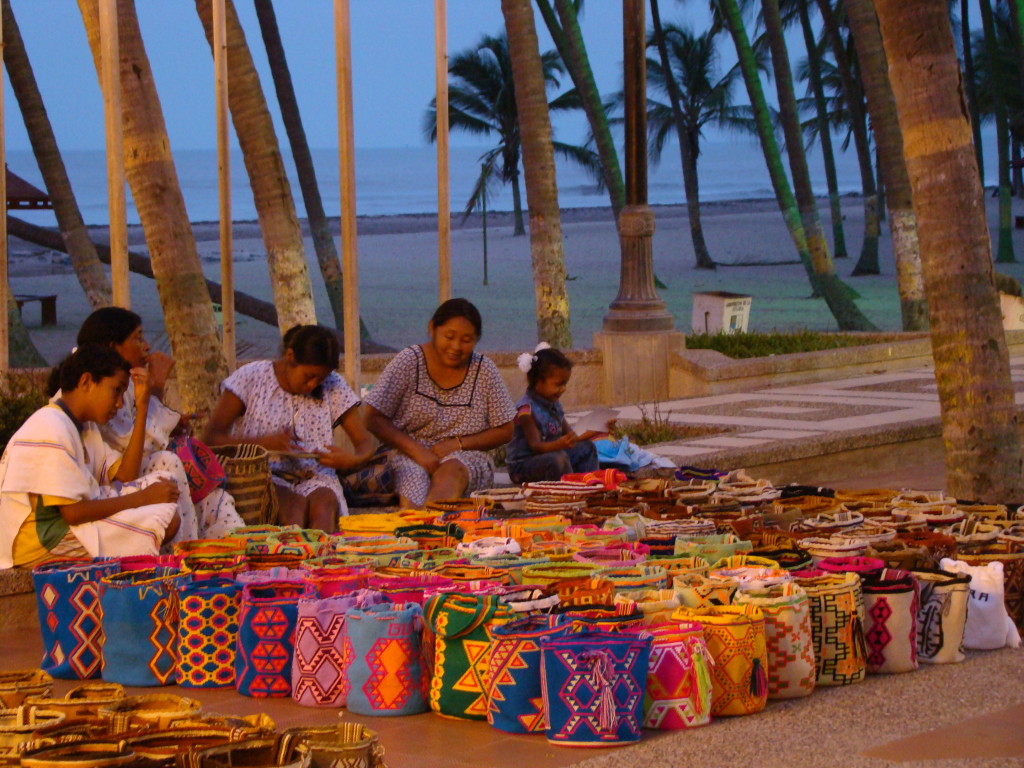Colombia-Venezuela border security threatens Indigenous way of life
After almost 8 months of the closing of the Venezuelan-Colombian border, local authorities of the border city of Cúcuta, Colombia stated on April 10 that they would carry out a census of all Venezuelan automobiles being occupied in the city in order to tax their owners. This is one of many actions between the neighboring countries to sanction smuggled trade of goods from one country to the other, as a result of Venezuela’s unilateral closing of its border with Colombia. For decades, the neighboring Colombia and Venezuela have been governed by drastically differing economic policies, leading to large discrepancies in costs and supply of certain consumer goods ranging from gasoline to food. Therefore, a large smuggling trade has predictably emerged and grown to become the primary economic activity in the Colombian-Venezuelan border region.
In August 2015, the Venezuelan government deemed the border situation was getting out of hand, accusing thousands of Colombians of living in Venezuela illegally and feeding a bustling smuggling trade. While there may be an element of truth to the Venezuelan government’s claims, BBC reports that the political opposition in Venezuela sees the government, led by Nicolás Maduro, as attempting to regain popular support by heightening fears of a foreign enemy. Nonetheless, the once-porous border was unilaterally closed in August 2015, leading to negative economic consequences on both sides, and no significant end to the contraband trade.
The closures did not seem to bring the smuggling trade to the desired immediate stop. A culture of corruption pervades both sides of the border, with bribes as small as $3 enough for police and border control officers to allow contraband goods to pass through. Colombian smuggler sisters Gabriela and Camila stated in an interview with TIME magazine that they see the bribes as the daily cost of doing business. Typically, the only times Colombian authorities confiscate smuggled goods are when the authorities are not given their desired payments, as reported by an experienced smuggler known as “El Jefe.” With no fence or barrier to close off areas between border checkpoints, makeshift paths have been built for motorcycles to evade checkpoints when the border is closed. Yet again, both Colombian and Venezuelan authorities are aware of these paths, but little is done because parami litary gangs have bribed the guards. With an extremely pervasive culture of corruption, Venezuelan efforts to curb smuggling have been largely ineffective.
litary gangs have bribed the guards. With an extremely pervasive culture of corruption, Venezuelan efforts to curb smuggling have been largely ineffective.
In fact, while tightened security efforts on the Venezuela-Colombia border have had little effect on the smuggling trade, they may be threatening indigenous populations’ way of life. The Wayuu people are an indigenous group that lives on the desert-like Guajira peninsula: the northernmost point of both Colombia and Venezuela. The Wayuu view the Guajira peninsula as their homeland, and do not recognize the border between Colombia and Venezuela. Until recently, both governments have respected the Wayuu’s claims and have granted them the right to cross the border freely. This has enabled them to participate in the contraband trade, which they do not see as illicit as long as it remains within their territory. Despite the large role of smuggling as a source of income for the Wayuu, they are much less involved with the larger contraband trade and do not have significant ties to paramilitary organizations or corrupt officials, making them a less dangerous target for authorities.
President Maduro has vowed to respect the Wayuu’s de facto sovereignty when implementing the new border controls. Nonetheless, many Wayuu report being stopped at the border ever since Venezuela imposed stricter controls, an act they view as a violation of their rights and way of life. The border controls, in fact, may pose a serious threat to the Wayuu, with clans being divided and widespread malnutrition looming if their economic activity is suppressed.
Although Venezuela’s border control efforts have aimed to combat foreign smugglers taking advantage of price-controlled goods to fund organized crime and leave locals without basic necessities to purchase, a pervasive culture of corruption has instead allowed most of the illicit activity to continue, while threatening the rights of the indigenous population.
